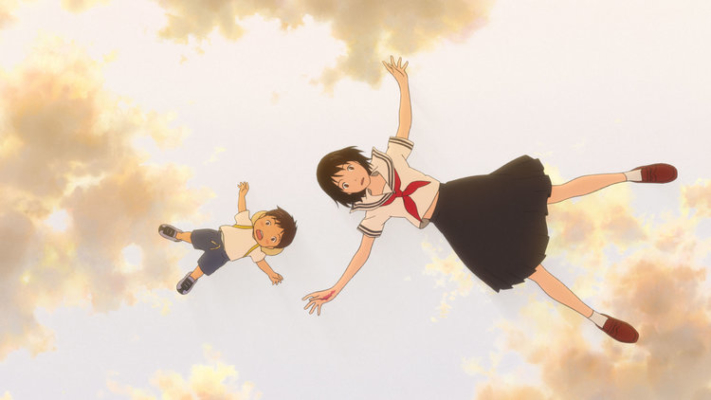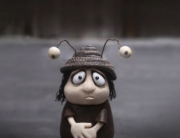Fantasy, reality, and time travel collide in Mirai, a Japanese animated film written and directed by Mamoru Hosoda. Kun, a four-year-old boy, witnesses how his life’s about to change with the arrival of a new family member, his newborn sister named Mirai (Japanese for “future”). Like many elder sons at that age, Kun feels jealous of his sister. Her presence steals all the attention from his parents, and she gets all the love and affection easily. He even complains that Mirai is cuter than him.
What begins as a common portrait on paternity, childhood, and the problem of dealing with a newcomer sibling is blended with new and strange elements that complicate the story and character development in confusing ways. Kun must learn valuable lessons about the past (and the future) of his family as well as about himself and the meaning of being a big brother of the little creature that his mother told him to be protective of. At least this is part of the message one can guess from the messy and muddled, half-baked moments that never fuse coherently. More than a consistent tale, this is a collection of episodic anecdotes, family memories, and short adventures.
The major problem with Mirai is that every new element introduced (a character from future, a place from past, a curious event like a canine transformation) seems to be crucial to the story line until it really isn’t at all. Kun meets alternatively a home spirit, his sister from the future, his parents as children, a deceased grandfather as a young man, but the narrative never spends enough time with these segments because there is always another adventure around the corner. Additionally, there isn’t a direct explanation of how these fantastic incidents are even possible. Hosoda trusts that being imaginative is a justification in itself.
Sadly, the animation is also flat and monotonous, except for a compelling sequence set in a train station. The intricate plot (or lack of it) doesn’t suit well as an entertainment for children or as an amusement for adults. It’s also easy to feel annoyed because of the whiny and spoiled Kun. It should be a tacit film rule that no one should have to tolerate a screaming child any longer than is necessary. This movie tests your patience on that score.
One of the many random fantastic episodes in Kun’s life occurs when the grown-up Mirai from the future (beautiful and smart) requests help from Kun in order to get married. According to an ancient tradition, two ritual dolls must be kept in their proper box otherwise Mirai never can get married. The more days the dolls remain out of their box, the more days she cannot get married in the future. This appealing premise would have been sufficient material for the entire movie.







Leave A Comment